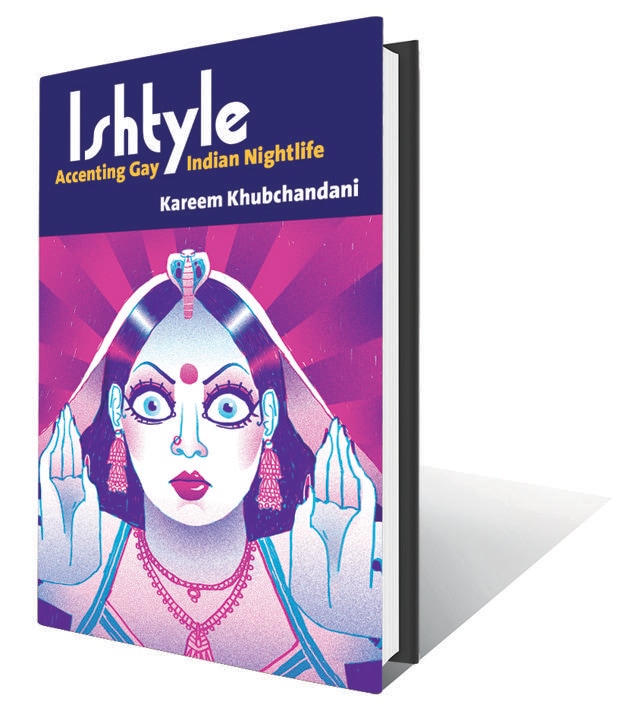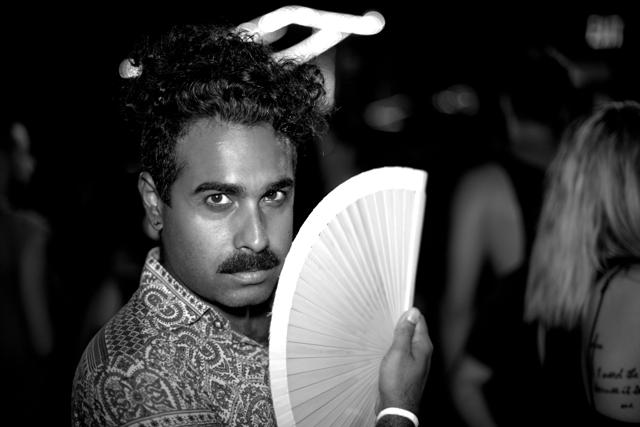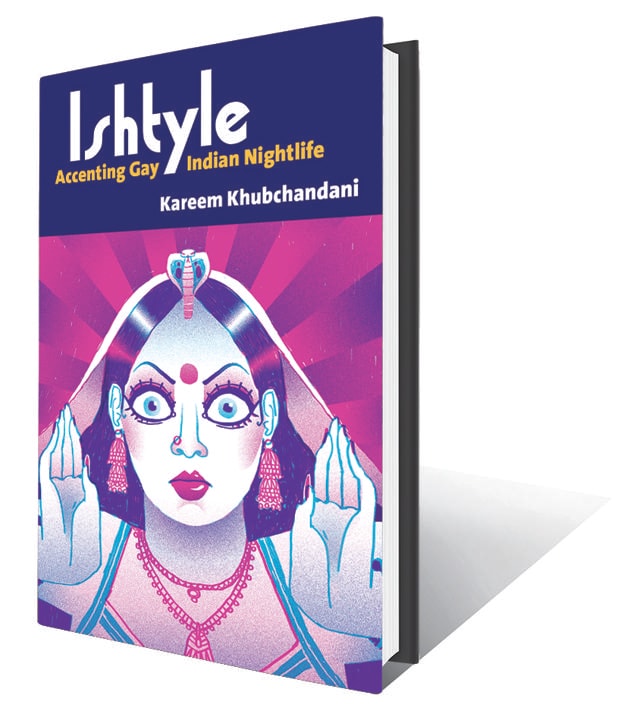
“The sun is nice but it lights things up so much that you can’t see very far… The nighttime is better. It stretches your soul right out to the stars. And that is a very long way… It’s like your ears. In the daytime it’s so noisy you can’t hear. In the nighttime you can,” says four-year-old Anna to 19-year-old Fynn in Mister God, This is Anna (1974) by Sydney Hopkins.
I discovered the story of their unusual friendship in my early twenties. It made an impact so deep that I felt a need to preserve some of its words in my journal. They leapt out at me while I was reading Kareem Khubchandani’s book Ishtyle: Accenting Gay Indian Nightlife, which documents the pleasures and perils of being ‘out’ at night in Bangalore and Chicago.
Khubchandani’s use of the word ishtyle is a playful ‘accenting’ of the English word ‘style’. He became familiar with this usage while growing up as a diasporic Sindhi, born in Gibraltar and raised in Ghana, soaking up ‘Indianness’ through Hindi films. In his childhood lexicon, ishtyle stood for aspiration and excess: jeans that were too tight, dance moves that were too filmi, clothes that were too blingy.
While Khubchandani draws on these memories, he does not dismiss ishtyle as “failure or imperfect performance.” He views it as “a reparative project” that employs humour to expose snobbery and push back against hegemonic ideas about desirability. In recognizing the labour involved in producing and performing ishtyle, he celebrates the spirit of those who dance “to escape the quotidian exhaustion that systemic conditions produce.”
The author is not a professional voyeur, peeking in with a heteronormative gaze just because queerness now seems cool and marketable. The knowledge he generates is possible only because of his unique vantage point as a performance studies scholar, a drag queen, and a transnational desi. The interest in outliers comes from being one of them: a fellow citizen of the night, shunning respectability, seeking pleasure.
Khubchandani is the Mellon Bridge Assistant Professor in the Department of Drama and Dance and the Program in Women’s, Gender, and Sexuality Studies at Tufts University in the United States. He writes, “Drawing on the work of Black, feminist, and queer researchers, I embrace and honour ethnography as a means of uplifting minoritarian ways of knowing. Describing how I approached and was encountered in the field, I mobilize reflexivity to resist colonial and patriarchal tendencies to efface the (presumably objective) researcher.”
He speaks of the gay men he meets from a place of “critical generosity.” They are not merely subjects to be studied. Many of them are friends, acquaintances, community members and love interests. There is a relationship of care. His approach towards them is reminiscent of Naisargi Dave’s book Queer Activism in India (2012). Like Khubchandani, Dave does not pretend that she is a fly on the wall. She acknowledges her emotional investments and entanglements.
The author brings to this book his experience of studying in the US and teaching there, organizing Bollywood nights in Chicago to raise funds for a queer support group, and partying in Bangalore as part of his fieldwork. He is able to draw insightful connections between the information technology boom in India, and the hostility towards immigrants in the US. His research is an attempt to show that these people have lives beyond the day jobs that treat them merely as cogs in the capitalist machine.

Many IT professionals in Bangalore are migrants whose work gives them an opportunity to stay away from family and explore their sexuality. Even those who are not out to their colleagues use location-based networking apps to find friends on tech campuses to eat lunch with, rent apartments together, and go to parties with. “While mingling at parties, I’ve listened as men asked new acquaintances about job opportunities at their companies,” writes Khubchandani.
Similarly, in Chicago, when queer desi men congregate at nightclubs, they are often looking to make social connections especially if their heterosexual desi colleagues in the US are homophobic and the white gay men they end up meeting are racist. Khubchandani writes about the support queer desis offer one another by “housing recent asylees and local friends displaced from their homes, bringing new and nervous South Asians from across the Midwest they have met online to their first gay bar, opening homes to strangers by hosting potlucks.”
The pages of this book pulsate with joy as they describe ‘LaWhore Vagistan’, the drag persona adopted by Khubchandani. The name is well-chosen. On the one hand, it references his subcontinental pre-Partition heritage that is simultaneously Pakistani and Indian. On the other hand, it unsettles the hypermasculine aesthetic of gay nightclubs that ironically look down upon transfemininity and prohibit cross-dressing even as they play Sridevi and Madhuri Dixit songs.
Though they promote themselves as inclusive, there are party venues that explicitly deny entry to trans women. Khubchandani writes, “Hijras do drag labour for queer India, dancing publicly at marches and performing item numbers at melas and pageants during pride month, reinterpreting film songs for our entertainment and nostalgia, but never at the club.” Citing barriers such as steep cover charges, class privilege, transphobia and casteism, he argues that “some cultural workers are never given the opportunity to participate” in spaces that are meant for profit rather than community building.
The author reveals that, in many of his research interviews with gay men in Bangalore, he observed that their ‘coming out’ stories included clarifying to families and friends, “I am not a hijra.” Is this simply a matter of using the correct vocabulary or relying on the “hypervisibility of poor-class transgender communities to make gayness palatable to middle- and upper-class families?” Khubchandani believes that it is likely to be the latter.
He further investigates the performance of class as social capital through the lens of “olfactory disciplining” that is experienced by Indian IT professionals in the US, and IT professionals in India who work for American companies. Workers are asked to use hair gel instead of hair oil, and deodorant instead of talcum powder. This practice is an extension of English speaking, accent neutralization, personal grooming and soft skills training to make them presentable and palatable according to so-called global standards.
How does the dance floor challenge or reproduce class, caste and racial hierarchies? Why are certain genres of music considered downmarket? What kind of labour are Dalits in Bangalore, and people of colour in Chicago, expected to perform in order to feel welcome, desired or simply not considered as threatening? Who do the cops go after when there is a misunderstanding, a fight, or a crime? Why is the word ‘Indian’ used to subsume Pakistani, Bangladeshi and other South Asian identities? Is it possible to throw politics aside, and simply dance?
These questions are critical for Khubchandani, whose book is an extraordinary labour of love. It would benefit readers interested in topics such as queer migration, moral panic, economic liberalization, class mobility, homonationalism as well as diversity and inclusion in corporate India. More than anything else, it is an archive of rapture and delight in pre-pandemic times. The book comes with a playlist, so sing along, and dance away your heartache.
Chintan Girish Modi is a writer, educator and researcher. He is @chintan_connect on Twitter.

